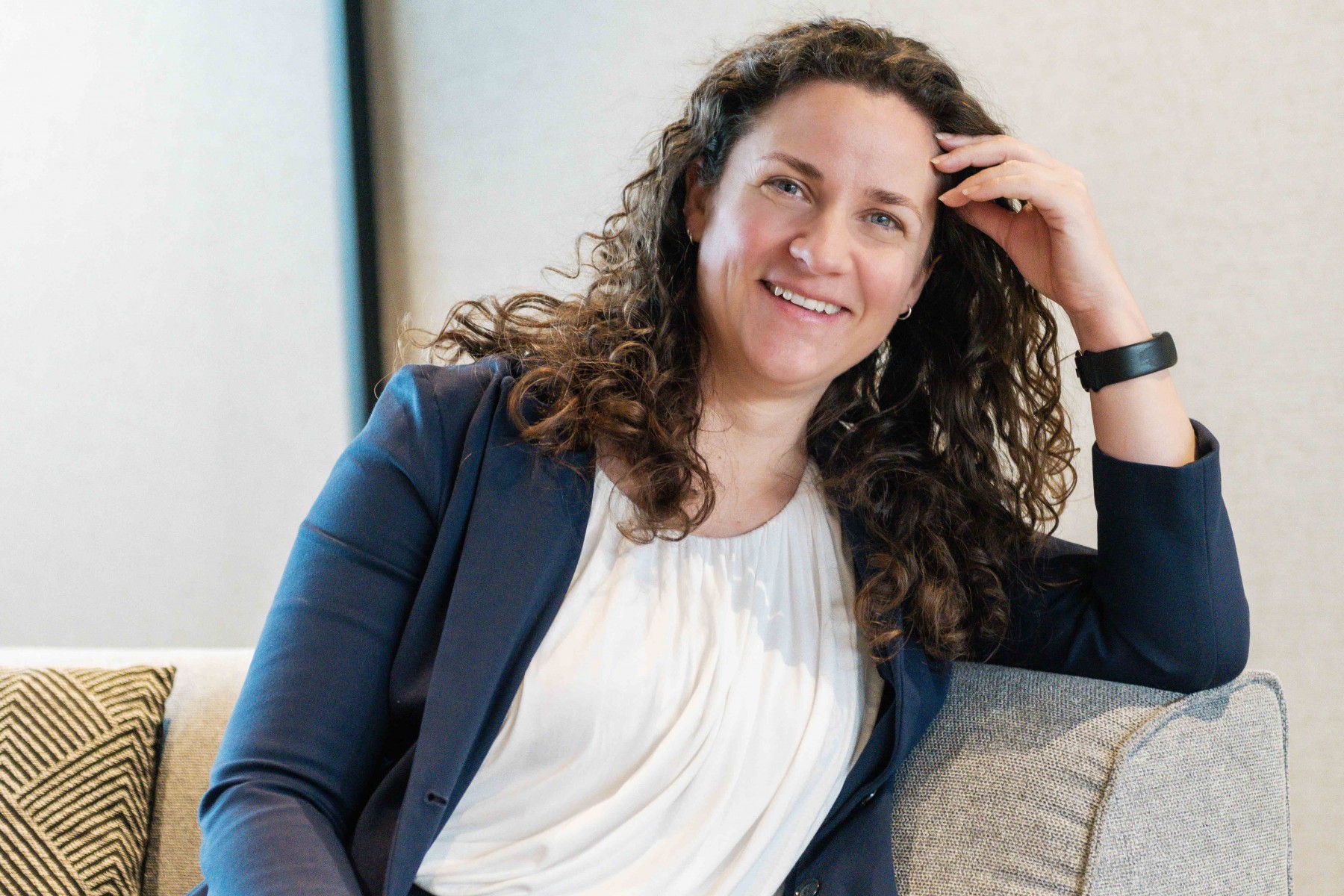Digital transformation starts with people

In today’s increasingly digital world, it's easy to get caught up in the tools and technology and forget about the human aspect. At Based, we're passionate about technology, but we also believe that digital transformation goes beyond that. That's why we prioritise the strategic, process-oriented, and, most importantly, the human side of organisations. Our co-owner, Hanneke Pronk, explains why we take this approach.
Why is the human aspect so important for Based?
"Without people, no success. In every organisation, progress is driven by the people who work with new tools and materials. It's essential to ensure everyone is aligned and moving in the same direction. Why? Because without the support and engagement of the people involved, any innovation or changes in processes are unlikely to succeed.
Embracing the digital future often requires a significant investment. However, if your employees are unwilling to adapt, it can result in wasted resources. This lack of alignment can lead to unproductive outcomes and cause frustration within the organisation due to recurring resistance."
Where does this resistance originate from?
"Resistance often arises from ignorance. We frequently hear statements like, "Why should we change the way we work? Everything is fine as it is, isn't it?" or "Why do I need this new tool when the current one works perfectly well, right?" These questions are logical because people may not fully understand the implications of innovation and digitalisation. They have yet to realise the advantages that new knowledge and tools can offer them.
It is crucial to involve everyone in the entire process from the beginning, both strategically and practically, including all levels from staff to management. Failing to do so can result in resistance and frustration, with individuals thinking, "It's great that management wants this, but I'm not going to do that." Unfortunately, there are instances where the staff is not included in management's plans, which is a real shame."
Is management aware of this?
"No, absolutely not. It's not a lack of willingness but rather a lack of consideration from management. For example, I once collaborated with a client who claimed to prioritise their employees. They required access to specific data on a unified platform, and the client had already chosen a tool for this purpose. This is where things went wrong. In this case, people were prioritised over technology. The tool was chosen without considering whether it met the organisation's and employees' needs. The employees hadn't been consulted, which is unfortunate. Involving your employees in the planning process often helps avoid resistance and prevents lengthy and costly changes to tools that may not be necessary."
How would you approach a situation like this?
"When a company approaches us for assistance with innovation and digitalisation, we begin by assessing their current level of knowledge. This allows us to tailor our approach accordingly. We understand the importance of starting with the basics and building a strong foundation. However, we also see the value in exploring more complex topics from the beginning. At Based, our approach usually involves forming a core team, with each member bringing their unique expertise to the table. If there's a need for additional explanation on topics like OTL or Linked Data, we assign the appropriate person to provide clarification. I see our role at Based as that of a translator. We simplify complex concepts from technical jargon to layman's terms, guiding our clients through each step to ensure they understand how to work with the technology. It is essential for individuals to directly experience the benefits, such as time savings and improved outcomes. This allows them to recognise the inefficiencies they previously faced and the unnecessary frustration it caused."
How can this knowledge transfer be achieved in practice?
"It all depends on the question at hand. First, we assess the existing knowledge level. Then, we move on to the vision and strategy. If those are not yet established, we work with the client to determine them. If the vision and strategy are clear, they serve as the foundation for our action plan, which always includes an analysis of the processes. We start by talking to people: “How do you work? What is your next step? Where do you find your information? What are your goals?” Initially, people often insist on sticking to the status quo because "that's the way it's always been done." However, they may not realise that embracing change can lead to faster, more accurate, and more accessible ways of doing things in various areas.
Our experience enables us to quickly understand the challenges people are facing. However, it's essential for individuals to come to this understanding themselves. This is why we believe in introducing them to new strategies through workshops. Workshops are perfect for fully engaging the individuals responsible for implementing these strategies. This allows them to wholeheartedly embrace the chosen goal, understand its benefits, and discuss the challenges they are encountering. This often leads to identifying areas where improvements can be made more efficiently, effectively, and with greater ease."
What happens next?
"After conducting a workshop, we typically establish a solid foundation. The subsequent steps depend on the organisation's needs and preferences. We may offer additional workshops or training in various areas or opt for on-the-job coaching. Our approach varies based on the organisation's and its employees' specific requirements. Sometimes, we work closely alongside individuals; other times, we provide instructions and allow them to work independently. We often assume some of their workload and act as a catalyst for change.
Based's strength lies in implementing theoretical knowledge and getting people on board at all organisational levels, which is what I enjoy most about my work."
Why do you like this so much?
"If you can get people in an organisation on board, you can really add value and make an impact. It energises me to work with so many different people. Some are immediately enthusiastic and want to know everything. Some people are sceptical and adopt a "wait and see" attitude, while others are well-informed and have already conducted preliminary work. Each one requires a different approach and can make valuable contributions to their organisation's transformation in a unique way.
The ultimate goal of getting an organisation on board is for the people within the organisation to be able to move forward independently. As a consultant at Based, it is satisfying to achieve this with a client. This is the added value I am always seeking."
Is the human aspect also so important at Based?
"Yes, absolutely! We don't refer to ourselves as social tech companies for no reason. People and culture are our top priorities. That's where it all begins. Our actions are driven by people, not technology. If you consider yourself a social techie, you are more than welcome. We currently have some excellent job openings!"
Curious about our work process?
Then contact Hanneke at 06 - 330 92 634 or check our website.


